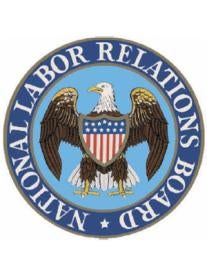An employee’s dishonesty during his employer’s lawful investigation into workplace complaints could serve as a basis for discipline of the employee, even if the conduct in question took place during the employee’s exercise of Section 7 rights under the National Labor Relations Act, the National Labor Relations Board has decided. Fresenius USA Manufacturing, Inc., 362 NLRB No. 130 (June 24, 2015)
The employee, an open and active union supporter, anonymously scribbled vulgar, offensive, and threatening statements on several union newsletters in a company break room to persuade his co-workers to support the union in a decertification election. During the ensuing investigation prompted by complaints about the statements by several female employees, the employee denied authorship. After the company confirmed the employee’s authorship, he was suspended and discharged for the statements and his dishonest denial of authorship.
The Board previously had decided the suspension and discharge were unlawful.
Looking at the case anew, however, the Board concluded that even assuming (without deciding) the employee’s handwritten statements were protected (the statements encouraged warehouse employees to support the union in the decertification election), the company lawfully discharged the employee for dishonesty. The Board observed that “as part of a full and fair investigation, it may be appropriate for the employer to question an employee about factually valid claims of harassment and threats, even if that conduct took place during the employee’s exercise of Section 7 rights.” In addition, the Board noted the company had a legitimate business interest for investigating the handwritten comments and that its decision to investigate was consistent with its anti-harassment policy and with other federal statutes, including Title VII of the Civil Rights Act of 1964. The company was justified in expecting the employee to answer its questions truthfully. Although, the Board noted, in some circumstances an employee may have a legitimate basis for lying to his employer (for example, where an employer unlawfully interrogates an employee about his union organizing activity), this was not such a case.
The Board also concluded the company had conducted its investigation in a manner that was consistent with the purpose of its investigation, The company explained the reason for the investigation to the employee, the questioning was reasonably tailored to the purpose of the investigation, the company did not ask about his union views or any of his other union activities, and it focused exclusively on the handwritten comments alleged to be harassing and threatening. Further, the Board found the investigation did not occur in a context of employer hostility to protected union activity.
The Board next found the employer met its burden of showing that it would have taken the same action even in the absence of the employee’s handwritten statements because discharge for dishonesty was consistent with discipline it had imposed for similar violations in the past. The Board noted that employers may satisfy their burden by demonstrating dishonesty was an independent reason for prior terminations, or that a practice of discipline for similar acts of dishonesty exists.
Employers questioning employees in connection with an investigation must have a legitimate business interest and conduct the investigation in a manner consistent with the purpose of the investigation. In addition, the questioning should be reasonably tailored to the purpose of the investigation and the interviewee should not be asked about union views or the union views of any coworker. The questioning should be focused exclusively on the particular conduct alleged to be problematic.






 i
i